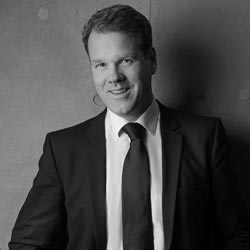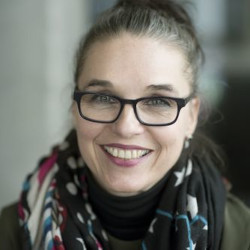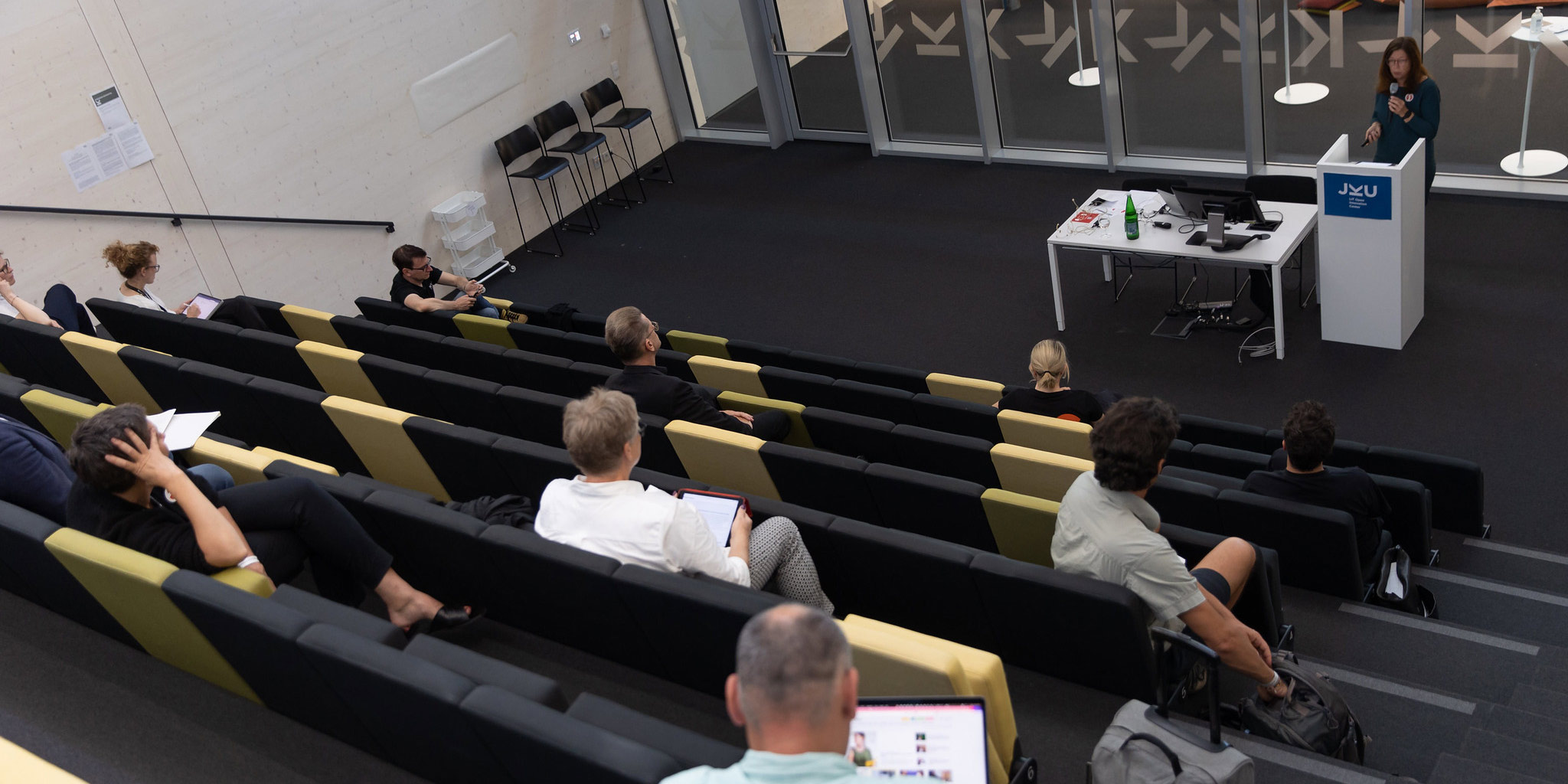Speakers: Ulf-Daniel Ehlers (DE), Markus F. Peschl (AT), Manuela Naveau (AT), Daniel J. Lang (DE)
Moderation: Christopher Lindinger (AT), Kerstin Pell (AT), Patricia Stark (AT)
Ulf-Daniel Ehlers (DE)
Keynote (online): Rethinking universities. Potentials and scenarios for higher education in the future
Registration: https://www.reglist24.com/symposium-universitas
8.9.2021
| 12:15 | Admission & Registration |
| 12:50 – 13:00 | Welcome |
| 13:00 – 13:45 | Keynote (online) Ulf-Daniel Ehlers |
| 13:45 – 14:15 | Opening Note Christopher Lindinger |
| 14:15 – 14:45 | Lecture Markus F. Peschl |
| 15:00 – 15:30 | Lecture Manuela Naveau |
| 15:30 – 16:00 | Coffee Break |
| 16:00 – 16:30 | Lecture Daniel Lang |
| 16:30 – 17:45 | Roundtables Diskussions Patricia Stark, Kerstin Pell |
Markus F. Peschl (AT)
Presentation: How to Overcome 21st century Iliteracies. Moving Toward Establishing Innovation and Future-Oriented Skills and Mindsets in Higher Education
Are we prepared for the challenges of a world that is characterized by rapid technological and digital transformation, disruptive change, platform economies and ecosystems, as well as high levels of uncertainty, complexity, unpredictability, and ambiguity (“VUCA world”)? In most cases, our current educational systems do not equip students with essential skills for dealing with these challenges, especially in the fields of change, innovation, and making our organizations and societies future-ready. This has led to what we refer to as “three forms of 21st century illiteracies”. These forms of illiteracy can be observed both on an individual/cognitive and an organizational level; they do not only concern skills, but are actually rooted in attitudes, mindsets, corporate cultures, and embodied rituals. We will show how these forms of illiteracy can be overcome by going beyond classical higher/continuing education learning outcomes, educational settings, etc. As these changes are not so much about technological knowledge or skills, we will focus on mindsets, epistemological attitudes, such as giving up control, and our capacities of dealing with uncertainty and complexity. The goal is to enable learners to engage in an alternative approach to knowledge creation and innovation that follows a strategy of “learning from the future as it emerges”. We will discuss theoretical aspects and practical cases as well as implications for nurturing innovation skills and mindsets in higher education.
Manuela Naveau (AT)
Presentation: Nosing Around – for a mutual drift of research practices
During the last summer semester, the Interface Cultures department of the University of Art and Design Linz collaborated with the Technical University Vienna (Architecture and Spatial Planning, Future Lab) and the Cyens Centre for Excellence in Cyprus. The goal of both projects was the interdisciplinary exchange between artists, computer scientists, architects and urban planners. In both courses, roaming together, a non-goal-oriented observation was the method. Referring to the sociologist Robert E. Park, who was active more than a hundred years ago, “Nosing around” makes it possible to detect connections that have not yet been recognized. The question arises: Is science and its institutions now ready to tackle new assessments of hybrid experiments?
Daniel J. Lang (DE)
Presentation: Utilizing digital means in transdisciplinary learning to foster sustainability transformations
Given the complexity of fundamental sustainability challenges humanity is facing in the 21stcentury, such as climate change, bio-diversity loss or global injustices, transdisciplinary collaborations in research and teaching have gained increasing attention. In this presentation I will first outline why and how transdisciplinary learning on an individual, organizational as well as societal level has the potential to contribute fostering needed sustainability transformations. Second, I will introduce two concrete examples how digital means can be utilized to enable and facilitate such learning processes. Finally, I will conclude with some reflections on limitations of digital collaboration in transdisciplinary settings as well as potential further developments in this area.
 Ulf-Daniel Ehlers (DE): Ulf is a learning innovation expert, founder of mindful-leaders.net, serial entrepreneur, and Professor for Educational Management and Lifelong Learning at the Baden-Wurttemberg Cooperative State University in Karlsruhe. Being an activist for education innovation he has supported the development of innovation and quality communities in education, training and lifelong learning, stringily focussing on digital transformation.
Ulf-Daniel Ehlers (DE): Ulf is a learning innovation expert, founder of mindful-leaders.net, serial entrepreneur, and Professor for Educational Management and Lifelong Learning at the Baden-Wurttemberg Cooperative State University in Karlsruhe. Being an activist for education innovation he has supported the development of innovation and quality communities in education, training and lifelong learning, stringily focussing on digital transformation. Markus F. Peschl (AT): He is professor of Cognitive Science and Innovation at the University of Vienna. His focus of research is on the emergence of novelty (“Emergent Innovation”), 4E-approaches in cognitive science, future-driven organizational design, and on (organizational) enabling environments (“Enabling Spaces”) that are fostering knowledge and innovation work.
Markus F. Peschl (AT): He is professor of Cognitive Science and Innovation at the University of Vienna. His focus of research is on the emergence of novelty (“Emergent Innovation”), 4E-approaches in cognitive science, future-driven organizational design, and on (organizational) enabling environments (“Enabling Spaces”) that are fostering knowledge and innovation work.
Manuela Naveau (AT): Manuela Naveau is an artist, researcher, scientist and curator at Ars Electronica, where she developed the Ars Electronica Export department together with Artistic Director Gerfried Stocker and led it operationally for almost 18 years. Since 2020, Manuela Naveau has been a university professor for Critical Data at the Interface Cultures Department at the University of Art and Design Linz.
 Daniel J. Lang (DE): He is Full Professor for Transdisciplinary Sustainability Research at Leuphana University of Lueneburg at the Faculty of Sustainability. His professorship focuses on cooperation and mutual learning processes between different scientific disciplines as well as between science and society—with the aim to develop robust solution options for urgent sustainability challenges of the 21st century.
Daniel J. Lang (DE): He is Full Professor for Transdisciplinary Sustainability Research at Leuphana University of Lueneburg at the Faculty of Sustainability. His professorship focuses on cooperation and mutual learning processes between different scientific disciplines as well as between science and society—with the aim to develop robust solution options for urgent sustainability challenges of the 21st century.Credits
The project is part of TRANSFORM, a collaborative project between the University of Applied Arts Vienna, Johannes Kepler University, and Danube University Krems, and is funded by the Austrian Federal Ministry of Education, Science and Research.


